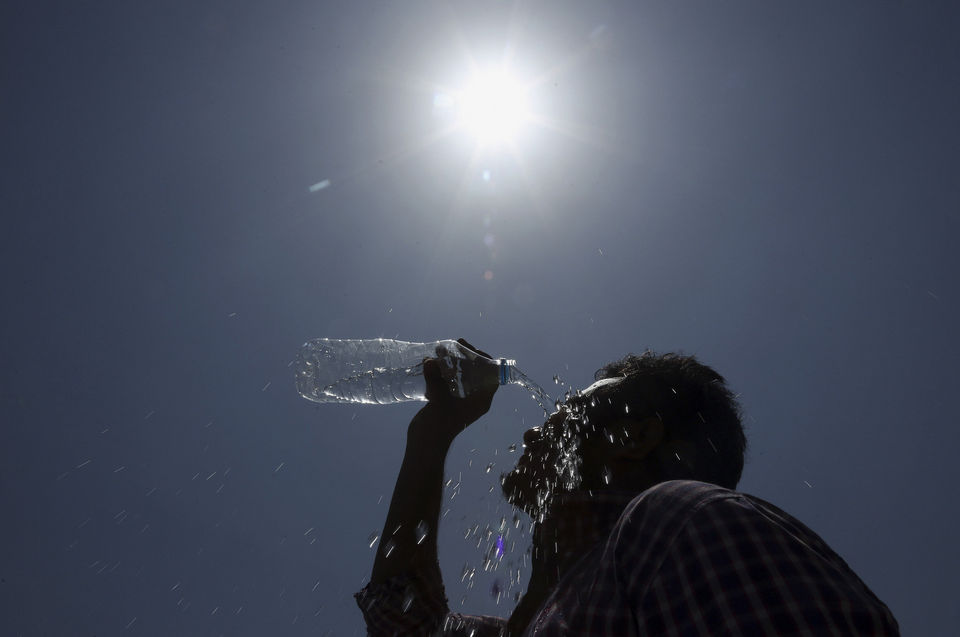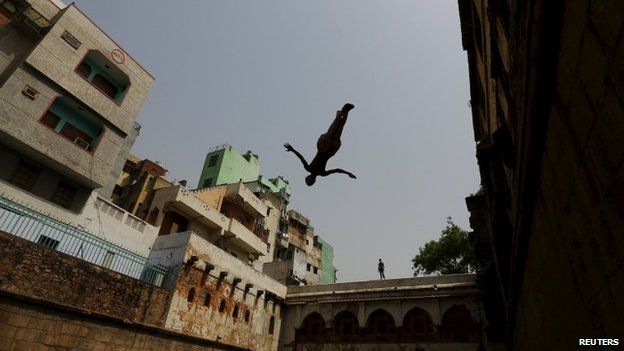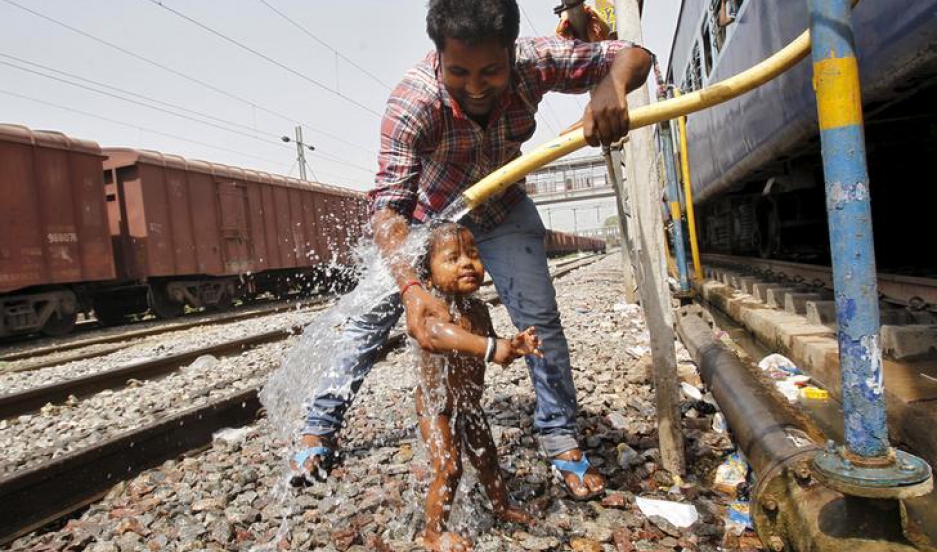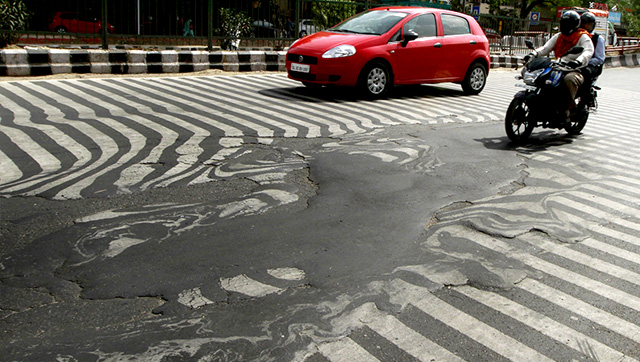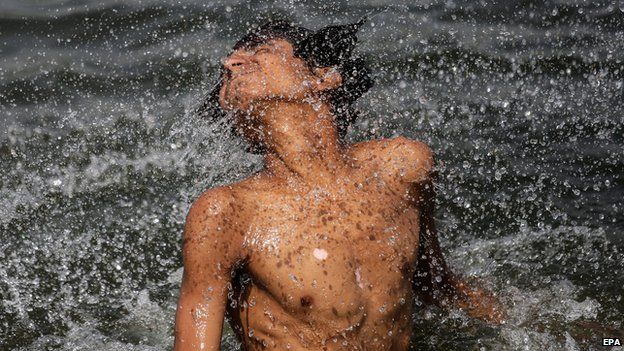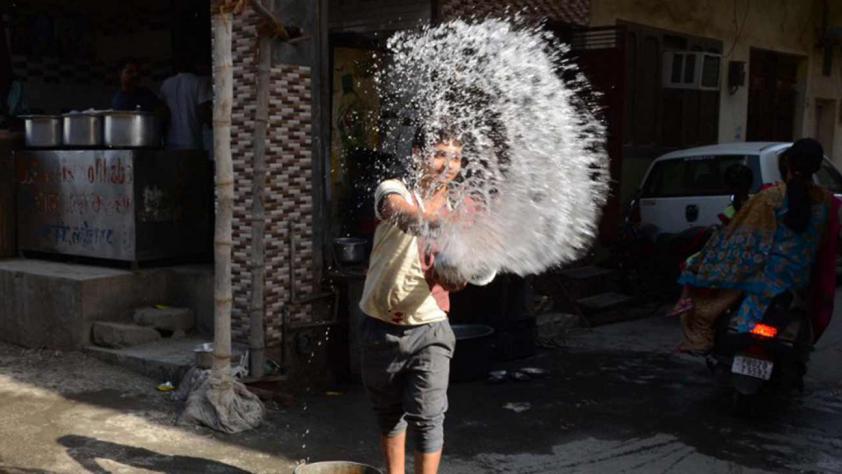India's Heatwave Has A Death Toll 50 Times Higher Than Malaysia's Floods Last Year
A natural disaster that surprisingly bothers very few.
In this photograph dated 24 May 2015, an Indian man pours water on his face during a hot summer day in the Indian city of Hyderabad
As of 27 May 2015, more than 1,100 people have died from health conditions related to the heatwave that is sweeping across India and leaving bodies in its wake. The death toll from heatwave is more than 50 times the number of the Malaysia floods from 2014.
In the 2014–15 floods, described as the worst floods in decades, that hit Malaysia from 15 December 2014 to 3 January 2015, 21 people were killed while more than 200,000 people were affected.
Most deaths have taken place in the southern states of Telangana and Andhra Pradesh, where at least 1,118 people have died since last week. Reports say at least 24 people have died from the heat in West Bengal and Orissa.
Temperatures are likely to drop in some parts over the coming days. Hospitals are on alert to treat heatstroke patients and authorities have advised people to stay indoors.
In this photograph dated 23 April, on a hot summer day a man cools off his child using a pipe that supplies water to trains at a railway station in the northern Indian city of Allahabad. Temperatures in parts of India have soared this week to 113 degrees Fahrenheit.
Heatwave conditions have been prevailing in the two worst-affected southern Indian states since mid-April, but most of the deaths have happened in the past week, the BBC reported in its 26 May report
In the worst-hit state of Andhra Pradesh, where temperatures climbed to 47C on Monday, 852 people have died.
"The state government has taken up education programmes through television and other media to tell people not to venture into the outside without a cap, to drink water and other measures," news agency AFP quoted P Tulsi Rani, special commissioner for disaster management in the state, as saying.
"We have also requested NGOs and government organisations to open up drinking water camps so that water will be readily available for all the people in the towns," he added. In neighbouring Telangana state, 266 people have died in the last week as temperatures hit 48C (118F) over the weekend.
Daytime highs have been soaring near the 50C mark, prompting authorities to advise residents to stay indoors and putting hospitals on high alert for heat exhausted patients. The soaring temperatures have caused roadways to literally melt in the capital of India.
This is what a zebra crossing near Delhi's Safdarjung Hospital looked like on Monday, 25 May.
Image via Sanjeev Verma/ HT photoThis SAYS writer stays in Delhi.
Unfortunately, there's no relief on the horizon
The Met Department has made it clear that the rest of the week is likely to be equally bad across the country, though there is some hope of rain towards the end of the week. Further up north, the chances of relief are still very low, with the monsoon itself not expected for some time.
Hospitals in most of the affected areas have been kept on high alert, especially for patients with heat stroke. Although heat isn't officially considered a "disaster," it's clear that this is nothing short of a national tragedy.
What is a heatwave?
Heatwaves are defined as periods of abnormally high temperatures and usually occur between March and June in India. May is the country's hottest month, with thermometers reaching a maximum of 41C (104F) in New Delhi.
Longer, more severe heatwaves are becomingly increasingly frequent globally. Intense heat can cause cramps, exhaustion and heat stroke. Thousands of people died across India during heatwaves in 2002 and 2003.
In this photograph dated 26 May, an Indian worker throws water outside a restaurant in the Indian city of Amritsar in an attempt to keep the pavement cool on a hot day
